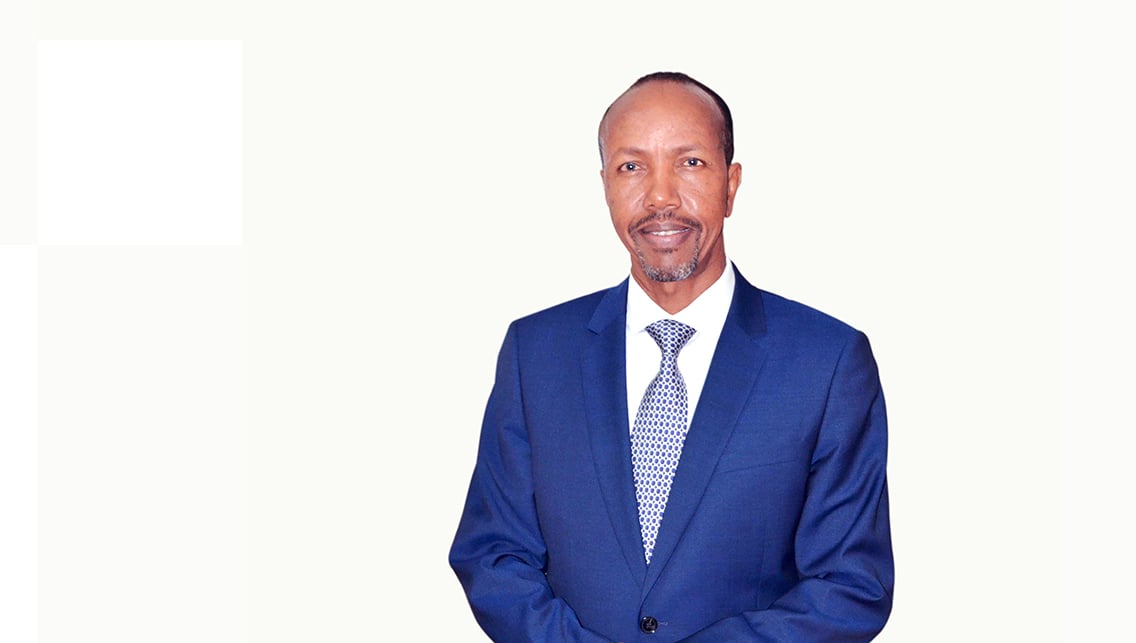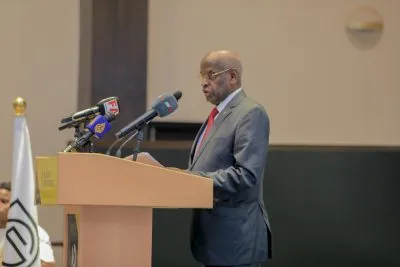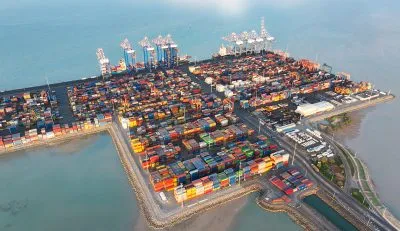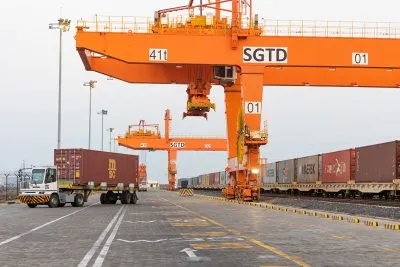African Business: There are discussions amongst economists around pegging a currency to the euro or the dollar. Some see it as an asset, because it brings stability and clarity to investors, whilst others say it’s a hindrance to the country’s competitiveness, compared to its peers or the Asian tigers for example, especially during a time of dollar appreciation – which is what we are seeing because of a red-hot US economy. What’s your take?
Governor Ahmed Osman Ali: That’s a very good question. I think it works well for Djibouti. We are predominantly an export-led economy, essentially in services, and these are not in direct competition with other countries in the region. So it doesn’t impact our competitiveness negatively.
I’d also like to point out that many countries tried to peg their currencies but few stuck to it because of the difficulty in maintaining this discipline, in terms of balancing the books. So the fact that we have managed to do it for so long is commendable.
We don’t see ourselves handicapped by it. On the contrary, the predictability of the Djibouti franc has helped attract investment, provides a stability to forecasts, and economic operators see this as a considerable advantage for our country.
And as far as interest rates are concerned, and inflation control, how do you manage that then?
Governor: So, mechanically, inflation in Djibouti is essentially imported inflation given our high reliance on imported products. But you will see that we have extremely low inflation rates, and these have hovered around the 2-3% mark.
And that means you track the US in terms of interest rates?
Governor: Yes, we mirror the US Fed.
But this stability and predictability has also enabled residents and even non-residents to use the financial centre in Djibouti to preserve their savings, whether at the level of individuals or companies. The financial services industry is sufficiently liquid, deposits
are much higher than loans and that enables the banks in the centre to provide interesting savings rates.
How are you going to encourage the banking sector to take more risks and increase its lending to the private sector? What reforms are you planning?
Governor: Our aim is to have solid commercial banks that are able to finance the needs of the economy with clear rules, in other words by controlling the risks they take. It is not a question of pushing the banks to grant loans where there is no likely operator or project owner that is sufficiently profitable to justify the lending.
Djibouti is today largely an economy based on services and trading. There isn’t really a lot of private investment apart from big operators like the port or telecoms.
So the needs are essentially trade financing
needs, in the form of letters and credits and so on. The banks are extremely liquid, so we can’t push them to take more risks on projects that don’t exist at the moment.
However, as we diversify the economy we expect our banks to develop capacity within their own institutions to be able to understand and support the financing of emerging businesses and opportunities, including in light and heavy industry, which we are doing through our new free zones.
What about supporting the SME sector?
Governor: Absolutely. It’s a constant subject of reflection. This was the essence of your first question, where banks are often criticised for collecting deposits and placing them in safe assets rather than deploying the money more widely.
To encourage banks to take more risk [with the SME sector], we came up with the idea of creating a partial credit guarantee fund. This is a fund financed by the state to take on part of the risk of the loan book, so that the bank does not find itself in a
bind.
Do you see Djibouti becoming a financial centre? You have banks that are very liquid, you have the parity of the dollar. Are you looking to become a centre like Singapore? Are these the country’s ambitions?
Governor: Djibouti is positioning itself for the future with a clear roadmap. That is why we are part of regional bodies such as IGAD and COMESA, to be part of a wider economic block where we can be an important actor.
And in fact, Djibouti has many favourable indicators: a limited deficit, low inflation rate, a fairly high tax-to-GDP ratio, a good trade balance and a stable currency and no exchange controls or restrictions on the repatriation of dividends or your investment. All are factors that make it an important centre, and around which we can also become an important financial centre.
Excellent. When it comes to financing major projects, infrastructure investments, where do the different stakeholders fit in, government, DFIs and private banks?
Governor: As it happens, most of the major investments that have been made to date have been financed through external partners, and the local banks have not been very involved. But this is changing, and a local bank was part of a syndicated loan on the Damerjog pipeline.
The increase in the level of debt has raised a few eyebrows. Where do you stand with that right now?
Governor: We’ve had this question, and there’s been a lot of talk about Djibouti’s indebtedness.
When you look at the evolution of our debt, with two projects we went from a debt of around 30% of GDP to around 70% – two large infrastructure projects around the port and the railway.
But we’ve always considered this to be justified and manageable, when the debt is to finance projects that are themselves capable of creating wealth, as is the case with the railway for example, which is a commercial activity – this commercial activity is designed to repay the loan.
Regional issues in Ethiopia have delayed things a little but these are projects that will deliver a return on the investment.
Want to continue reading? Subscribe today.
You've read all your free articles for this month! Subscribe now to enjoy full access to our content.
Digital Monthly
£8.00 / month
Receive full unlimited access to our articles, opinions, podcasts and more.
Digital Yearly
£70.00 / year
Our best value offer - save £26 and gain access to all of our digital content for an entire year!

 Sign in with Google
Sign in with Google 



